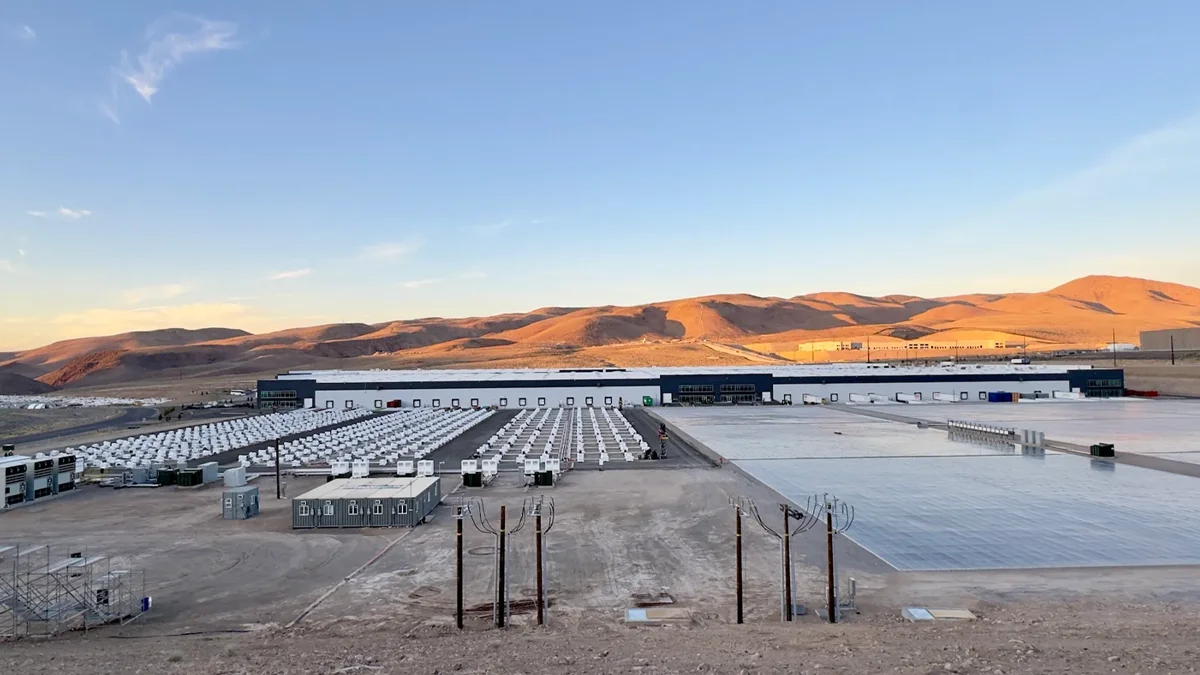Necessary Always Active
Necessary cookies are required to enable the basic features of this site, such as providing secure log-in or adjusting your consent preferences. These cookies do not store any personally identifiable data.
|
||||||
|
||||||
|
||||||
|

Redwood Materials has launched a new business named Redwood Energy to use old EV batteries for energy storage and power AI data centers. As reported by TechCrunch, the first deployment is already running in Sparks, Nevada. The site uses 805 retired EV batteries to power a 2,000‑GPU modular data center run by Crusoe.
This move marks a big step in Redwood Energy’s business and its sustainability push. The microgrid, fed by solar power, produces 12 MW with 63 MWh capacity that can charge batteries and power the AI data center. Founder JB Straubel described it as “revenue‑generating” and “profitable.”
Redwood Materials runs one of North America’s largest microgrids using used EV batteries. Nestled in the Nevada desert, this setup reuses batteries that aren’t yet recycled. The backup power system is solar‑charged and supports Crusoe’s modular AI data center.
This project highlights energy solutions for AI data centers, showing how second‑life batteries fill critical power needs fast. Crusoe’s “Crusoe Spark” units are self‑contained and GPU‑ready. Straubel noted that the system delivers clean, reliable, and cost‑effective power where grid capacity is limited.
Redwood claims it recovers over 70% of discarded lithium‑ion battery packs in North America. It processes 20 GWh yearly, enough for 250,000 EVs. The company now holds more than 1 GWh of batteries awaiting reuse, with another 4 GWh arriving soon. They plan to roll out 20 GWh of grid‑scale storage by 2028.
Redwood Materials now mixes battery recycling with power‑storage services. By repurposing EV batteries, Redwood is filling urgent energy gaps while expanding their clean energy reach. CTO Colin Campbell pointed out, “It’s a good economic choice that also happens to be carbon‑free.”
This is more than a small test; Straubel stated that the system was built in four months and is already profitable. He added that more such microgrids will be launched this year with different customers. “We wanted to go all in,” he said, referring to powering even the event’s music and light show.
Union of Concerned Scientists expert Jessica Dunn praised the plan, saying it “demonstrates how economical the waste hierarchy actually is” and signals where the end‑of‑life battery market is heading.
Redwood has also built a robust and scalable materials supply chain. The company recycles battery scrap and produces cathode and anode materials at facilities in Nevada and South Carolina. It has deals with Panasonic, Toyota, and GM, and raised $2 billion in private funding. In 2024, it generated about $200 million in revenue.
The Redwood Materials’ energy storage business addresses a critical need in the AI and energy sectors. AI data centers require large, reliable, and quick‑deploying power sources. Reused batteries can be faster to set up than new grids. Chase Lochmiller of Crusoe said using recycled batteries and solar power is a “cost‑effective and sustainably powered” solution.
Redwood plans a significant scale-up, over a gigawatt-hour already in inventory, and more than 5 GWh in the pipeline. They envision systems capable of 100 MW, over ten times the size of their current demonstration.
This energy‑first model could reshape how AI infrastructures are deployed, especially at the network edge, where grid power isn’t always accessible. By combining sustainable energy practices with rapid deployment, Redwood is carving a new path to clean energy and tech.